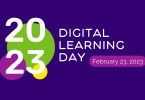Smooth transition towards online learning in Africa: A Futuristic Move!
A land of rich biological resources, ‘Africa’ struggles with high rates of educational exclusion.
To overcome these challenges, African educational system had embraced, the right of every child to access quality education.
In 2010, “GUIDELINES FOR INCLUSIVE TEACHING AND LEARNING” was published by the Department of Basic Education Republic of South Africa.
It covers important topics like Inclusion, Teaching methodologies, Learning styles and strategies in great detail.
Transition to Full Online Learning in Africa: The Need
Online education is not a new concept in Africa. However, it has gained a lot of popularity owing to the multiple challenges.
“United Nations Africa Renewal” provides information on the challenges and development in Africa. Amongst all the other topics, it also covers “education” closely.
Situation in South Africa is much better. They recognise the importance of a need-based learning and are ready to embrace fully, an online mode of education.
An online high school caters to the academic needs of each and every child who faces challenges, while pursuing regular or traditional schooling.
UNAR has analysed certain reasons for the ongoing transition to online mediums in Africa.
Challenges in the system
Dropout Rates
High drop -out rates mainly due to poverty and location is a critical issue in Africa.
UNESCO has shared shocking numbers of drop- out rates in Africa.
42% of African school children will drop out before the end of primary education.
Additionally, civil unrest also contributes to the drop-out rates along with several other factors.
Grade Repetition issue
Grade repetition is another serious concern in Africa.
It shows that in 2010, 11.4 million pupils repeated a primary grade in sub-Saharan Africa. This represents more than one-third of the global total.
Lack of equal access to education
Despite a lot of steps taken for the improvement in the African educational system, inequalities still persist. Income inequality trends mostly lead to these inequalities.
Low-quality teaching and learning
Education and training programs in Africa are low in quality. United Nations Development Programme has recognized poverty as the main hindrance to school enrolment and achieving quality education.
Access to tertiary education
In Africa, tertiary education courses open at a specified time of the year. Moreover, it is also costly in comparison with online mediums.
This is also making online learning platforms more and more popular among the students.
A smooth transition towards online learning in Africa:
Why Online Education?
Potential to beat the geographical factors
70% of the population (sub-Saharan African) live in rural areas. And find it difficult to attend regular school. Quality education in rural areas remains an obvious concern.
Efforts are taken to improve the mobile network connectivity in the remote rural areas of Sub – Saharan Africa. Therefore, online learning platforms can easily replace the traditional setups.
Can provide access to education easily to all
Educating the masses is made possible with online learning. While there are challenges in the developing world, literacy gaps can be covered with revolutions like online education.
Cost-effective Education
Smooth transition to online learning can help in realizing educational goals. While brick and mortar set-ups have their cost factors bothering the stakeholders, online mediums are comparatively cost-effective.
Zero travel cost, no hidden charges and accredited online schools do provide high-quality education at nominal costs.

Online Education: Eliminating several hinderances
Help in eliminating several hindrances
Lack of basic amenities, trained teachers, and infrastructure-related issues can be eliminated by opting for an online learning platform.
As there is no physical set up involved, such issues get resolved automatically.
Support for ‘Girl’s Education’
UNESCO has stated that,
9 million girls between the ages of about 6 and 11 will never go to school at all.
Accepting online education can be a saviour for these huge strata of the student population, which is deprived of basic education.

Homeschooling
Supporting the drop-outs, out of school and disabled children
Self paced online learning resources can certainly help the drop-outs and the out of school children to resume their education in the most seamless manner.
Although, there are numerous policies for the disabled in Africa for inclusion. Physical setups still do not suffice the purpose for all such students. Online mediums are flexible and students can be utterly comfortable at home, studying in a safe environment.
Moreover, with all the efforts of government and stakeholders, we cannot deny the numbers of school bullying and other atrocities towards the disabled students.
WHO has stated that disabled children are more ‘at risk’ in comparison with the non-disabled in terms of bullying, sexual abuse etc.
Way Forward: Legal Status of Home Schooling
Department of Basic Education, Republic of South Africa has acknowledged homeschooling (through online mediums or otherwise) as a legal choice for educating the child.
With certain pre-defined terms, conditions and stringent monitoring, a child can be home-schooled.
Quoting a point of ‘Policy on Home Education’
The character of home education allows for:
- Flexibility of learning provision, guided self-study and the use of a variety of media.
- Accesss to a varied array of public amenities (like libraries and museums). Commercially available learning program (online and otherwise) and tutorial assistance.
It is delightful to see African students embracing online learning platforms wholeheartedly. Progressive steps can certainly lead to eventual betterment.
Every continent has its own challenges and Africa is no exception. With the increasing popularity of online learning platforms, a smooth transition to online learning has already begun.
And Africa is all set, to present a great example for the world, to showcase the power of digital education and its massive impact. Certainly, this land of opportunity has no looking back!
Author’s Profile
Edwin Lim is an educator and a home-schooling mom. She has been writing for over 5 years. Edwin has travelled to a lot of places and got practical insights into the psychology of children.
She is also an advisor to parents. Edwin understands that each child is different. Hence, there are different ways to make a connection with them.
Through her writing pieces, she has motivated and guided parents to make the right decision for their children.
She is a graduate of mass communication. This made her receptive to varied cultural backgrounds.
It has further helped her to disseminate knowledge about improving learning retention within children.








